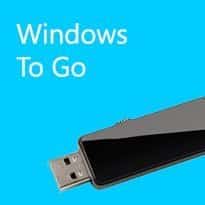Imperial sticks it to Windows
- 14 March 2013

Imperial College Healthcare NHS Trust is to deploy Windows To Go – a version of the new Windows 8 operating system on a USB stick.
It is designed specifically for businesses, allowing users to boot a full version of Microsoft Windows remotely on any Windows 7 or Windows 8 certified device; giving them access to their corporate network, including systems such as email.
Windows To Go can be deployed and managed like a traditional desktop PC, using standard Microsoft enterprise software distribution tools such as System Center Configuration Manager.
The difference is that it can be used on employees’ own Windows certified devices – supporting a limited version of ‘bring your own device’ in a secure manner.
Mark Smith, director of healthcare strategy for Microsoft, told eHealth Insider: “It uses the same security, the same governance and you can set the same access criteria and credentials as with any corporate device.” No data is stored on the USB stick.
The deployment at Imperial is one of the first in the UK and follows a successful trial during the Olympic Games last summer.
The trust had been concerned about the travel problems that might be caused by the increased number of tourists and athletes attending the games, and the impact this would have on the ability of IT staff to effectively keep more than 400 systems working.
Rather than face the expense of buying new laptops so staff could work at home where possible, managers opted for Windows To Go.
The solution allowed staff to access their work remotely simply by plugging in a USB drive, loaded with Windows To Go, into their home PC.
Kathy Lanceley, deputy chief information officer and and head of ICT operations at Imperial College Healthcare NHS Trust said: “Imperial faced significant potential challenges to its ability to provide high quality care and services due to the Olympics pressure on transport networks in the city.
“Many of our staff travel into central London on public transport. We originally thought the only solution was to provide staff with new laptops.
“However, Microsoft’s Windows To Go solution provided a far more cost-effective and seamless solution that not only allowed our staff to successfully work remotely, but also proved very simple to roll out.
“The sticks cost us £50 each compared to £750 for a laptop. In the future, we see this as having great potential to roll out to clinical staff to provide them with an easy and secure way of accessing our trust systems from home.”
Microsoft worked with Imperial’s technology team to integrate Windows 8 into the existing IT infrastructure.
The trust purchased encrypted USB sticks and loaded them with Windows To Go. This provided staff with their fully functioning desktop regardless of the device used. “We even had one employee running it on a MacBook Air,” said Smith.
The trust is now looking at making the solution more widely available to staff. Brian Dunleavy, NHS business manager at Ultima Business Solutions, a Microsoft partner with expertise in the healthcare sector, said this was an exciting development.
“Clinicians are just like office workers, needing access to information quickly, effectively and at any time, so they can access critical information and complete administrative tasks outside of the hospital setting.
“Until now, IT teams haven’t had the necessary tools to deliver such a fast and simple solution, but the availability of Windows To Go allows them to do so.
“The roll-out at Imperial College is tremendously exciting. Not only will it ensure IT delivers real value to staff across the trust, it will pave the way for future upgrades and changes to the organisation’s clinical desktop platform.”
Smith said interest in Windows To Go is “extremely high” in the NHS, not just because it is cost effective but also because it could help eliminate unsafe practice.
He said: “If people have Windows To Go they work at home in a secure way rather than sending a file using a free email to their home and working on their own PC where there is no security. It has amazing potential to change the BYOD market.”



